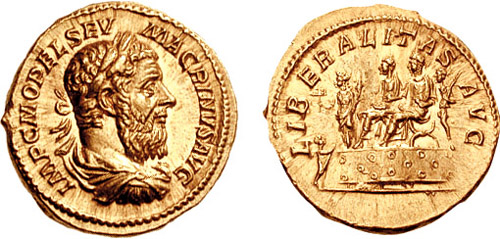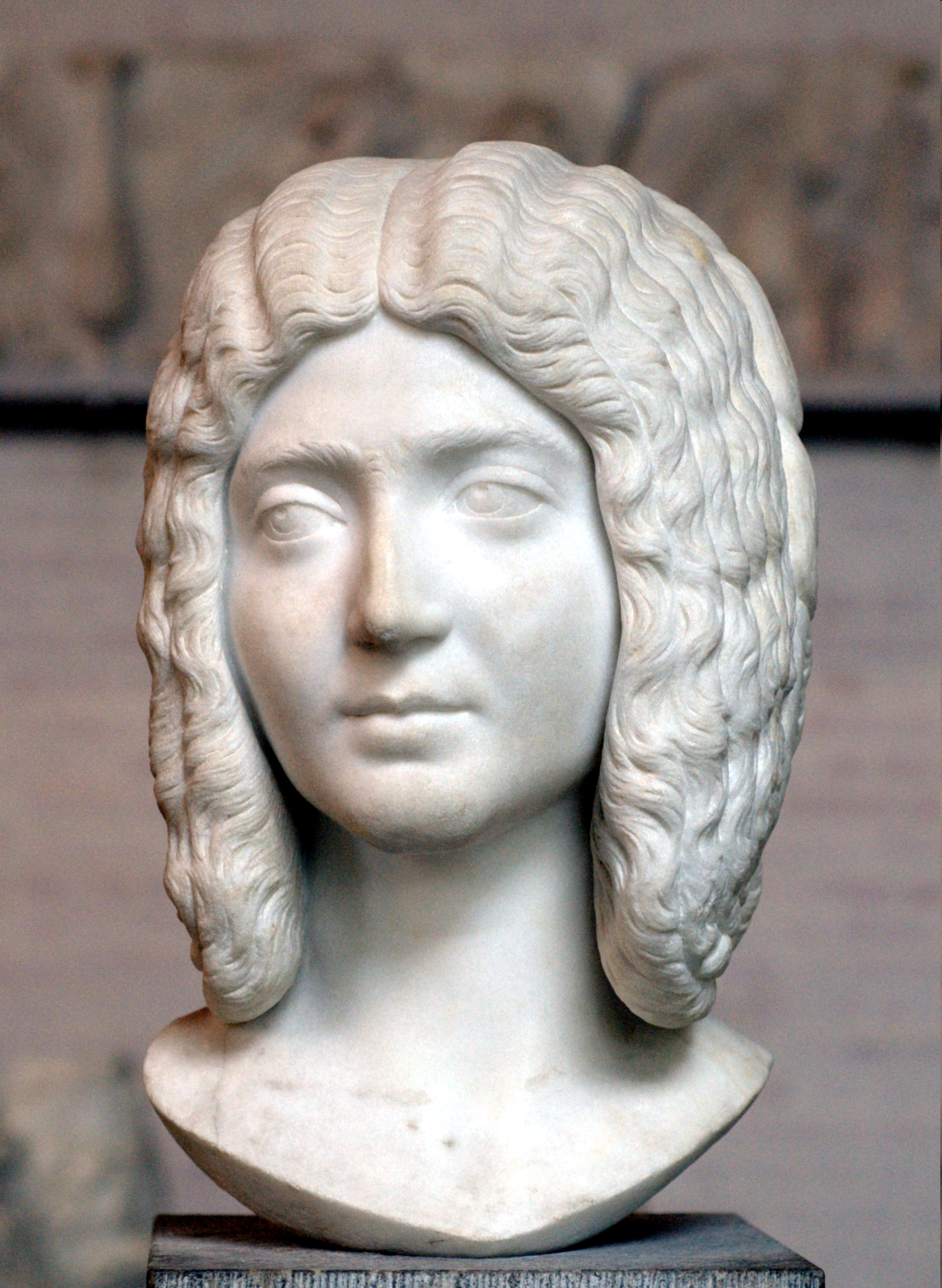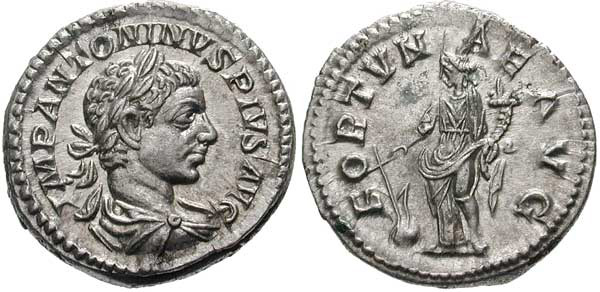|
Gannys
Gannys ( gr. ''Γάννυς'' or ''Γαίννυς'') was a Roman general who commanded the troops of Elagabalus (officially named Antoninus) against Emperor Macrinus in the Battle of Antioch. According to Edward Gibbon in his ''Decline and Fall of the Roman Empire'': "... Antoninus himself, who in the rest of his life never acted like a man, in this important crisis of his fate approved himself a hero, mounted his horse, and, at the head of his rallied troops, charged sword in hand among the thickest enemies; whilst the eunuch Gannys, whose occupation had been confined to female cares and the soft luxury of Asia, displayed the talents of an able and experienced general."Gibbon, Edward. ''Decline and Fall of the Roman Empire'', Vol. 1, Chapter 6. The contemporary historian Cassius Dio writes: Now in the battle Gannys made haste to occupy the pass in front of the village and drew up his troops in good order for fighting, in spite of the fact that he was utterly without experie ... [...More Info...] [...Related Items...] OR: [Wikipedia] [Google] [Baidu] |
Battle Of Antioch (218)
The Battle of Antioch (8 June 218) was fought between the Roman army of the Emperor Macrinus and his rival Elagabalus, whose troops were commanded by General Gannys, probably a short distance from Antioch. Gannys' victory over Macrinus led to the downfall of the emperor and his replacement by Elagabalus. Macrinus' predecessor, Caracalla, was murdered by a disaffected soldier during a campaign against Parthia on 8 April 217. Macrinus himself may have had a hand in the murder of Caracalla. Within days of Caracalla's death, Macrinus was proclaimed emperor with the support of the army. At the time of his accession he inherited all of the problems that Caracalla had left for Rome—war against Parthia, threats from Armenia and Dacia, and extensive fiscal expenditures. Macrinus successfully concluded a peace with Parthia, but it came at considerable cost to Rome. Finally, his policies to reduce monetary expenditures only stoked discontent within the military. Caracalla's aunt, Julia M ... [...More Info...] [...Related Items...] OR: [Wikipedia] [Google] [Baidu] |
Julia Maesa
Julia Maesa (7 May before 160 AD – AD) was a member of the Severan dynasty of the Roman Empire who was the grandmother of emperors Elagabalus and Severus Alexander, elder sister of empress Julia Domna, and mother of Julia Soaemias and Julia Mamaea. She wielded influence during the reigns of her grandsons as Augusta of the Empire from 218 to her death, especially on their elevation to emperors. Born in Emesa, Syria (modern day Homs), to an Arab family of priests of the deity Elagabalus, Maesa and her sister Domna were the daughters of Julius Bassianus. Through her sister's marriage, Maesa became sister-in-law to Septimius Severus and aunt of Caracalla and Geta, who all became emperors. She married fellow Syrian Julius Avitus, who was of consular rank. She bore him two daughters, Soaemias and Mamaea, who became mothers of Elagabalus and Severus Alexander, respectively. As one of the Severan dynasty's prominent women, Maesa sought to return to power after her sister's s ... [...More Info...] [...Related Items...] OR: [Wikipedia] [Google] [Baidu] |
Elagabalus
Marcus Aurelius Antoninus (born Sextus Varius Avitus Bassianus, 204 – 11/12 March 222), better known by his nickname "Elagabalus" (, ), was Roman emperor from 218 to 222, while he was still a teenager. His short reign was conspicuous for sex scandals and religious controversy. A close relative to the Severan dynasty, he came from a prominent Arab family in Emesa (Homs), Syria, where since his early youth he served as head priest of the sun god Elagabal. After the death of his cousin, the emperor Caracalla, Elagabalus was raised to the principate at 14 years of age in an army revolt instigated by his grandmother Julia Maesa against Caracalla's short-lived successor, Macrinus. He only posthumously became known by the Latinised name of his god. Later historians suggest Elagabalus showed a disregard for Roman religious traditions and sexual taboos. He replaced the traditional head of the Roman pantheon, Jupiter, with the deity Elagabal, of whom he had been high priest. ... [...More Info...] [...Related Items...] OR: [Wikipedia] [Google] [Baidu] |
Julia Soaemias
Julia Soaemias Bassiana (180 – 11 March 222) was a Syrian noblewoman and the mother of Roman emperor Elagabalus, who ruled over the Roman Empire from 218 to 222. She was one of his chief advisors, initially with the support and accompaniment of her mother Julia Maesa. She and her mother guided the young emperor until growing unrest and a family division led to her son's replacement by her nephew Severus Alexander. Julia Soaemias was killed along with her son by the Praetorian Guard. Julia Soaemias was born and raised in Emesa, Syria and through her mother was related to the Royal family of Emesa, and through marriage, to the Severan dynasty of Ancient Rome. Family She was the first daughter of the powerful Syrian Roman noblewoman Julia Maesa and Gaius Julius Avitus Alexianus, sister of Julia Avita Mamaea, niece of Julia Domna, and a niece by marriage of Emperor Lucius Septimius Severus. At some point, she married Syrian Equestrian and Politician Sextus Varius Marcellu ... [...More Info...] [...Related Items...] OR: [Wikipedia] [Google] [Baidu] |
Macrinus
Marcus Opellius Macrinus (; – June 218) was Roman emperor from April 217 to June 218, reigning jointly with his young son Diadumenianus. As a member of the equestrian class, he became the first emperor who did not hail from the senatorial class and also the first emperor who never visited Rome during his reign. Before becoming emperor, Macrinus served under Emperor Caracalla as a praetorian prefect and dealt with Rome's civil affairs. He later conspired against Caracalla and had him murdered in a bid to protect his own life, succeeding him as emperor. Macrinus was proclaimed emperor of Rome by 11 April 217 while in the eastern provinces of the empire and was subsequently confirmed as such by the Senate; however, for the duration of his reign, he never had the opportunity to return to Rome. His predecessor's policies had left Rome's coffers empty and the empire at war with several kingdoms, including Parthia, Armenia and Dacia. As emperor, Macrinus first attempted to ena ... [...More Info...] [...Related Items...] OR: [Wikipedia] [Google] [Baidu] |
Year Of Birth Unknown
A year or annus is the orbital period of a planetary body, for example, the Earth, moving in its orbit around the Sun. Due to the Earth's axial tilt, the course of a year sees the passing of the seasons, marked by change in weather, the hours of daylight, and, consequently, vegetation and soil fertility. In temperate and subpolar regions around the planet, four seasons are generally recognized: spring, summer, autumn and winter. In tropical and subtropical regions, several geographical sectors do not present defined seasons; but in the seasonal tropics, the annual wet and dry seasons are recognized and tracked. A calendar year is an approximation of the number of days of the Earth's orbital period, as counted in a given calendar. The Gregorian calendar, or modern calendar, presents its calendar year to be either a common year of 365 days or a leap year of 366 days, as do the Julian calendars. For the Gregorian calendar, the average length of the calendar year ... [...More Info...] [...Related Items...] OR: [Wikipedia] [Google] [Baidu] |
218 Deaths
Eighteen or 18 may refer to: * 18 (number), the natural number following 17 and preceding 19 * one of the years 18 BC, AD 18, 1918, 2018 Film, television and entertainment * ''18'' (film), a 1993 Taiwanese experimental film based on the short story ''God's Dice'' * ''Eighteen'' (film), a 2005 Canadian dramatic feature film * 18 (British Board of Film Classification), a film rating in the United Kingdom, also used in Ireland by the Irish Film Classification Office * 18 (''Dragon Ball''), a character in the ''Dragon Ball'' franchise * "Eighteen", a 2006 episode of the animated television series '' 12 oz. Mouse'' Music Albums * ''18'' (Moby album), 2002 * ''18'' (Nana Kitade album), 2005 * '' 18...'', 2009 debut album by G.E.M. Songs * "18" (5 Seconds of Summer song), from their 2014 eponymous debut album * "18" (One Direction song), from their 2014 studio album ''Four'' * "18", by Anarbor from their 2013 studio album ''Burnout'' * "I'm Eighteen", by Alice Cooper commonly ... [...More Info...] [...Related Items...] OR: [Wikipedia] [Google] [Baidu] |
Cassius Dio
Lucius Cassius Dio (), also known as Dio Cassius ( ), was a Roman historian and senator of maternal Greek origin. He published 80 volumes of the history on ancient Rome, beginning with the arrival of Aeneas in Italy. The volumes documented the subsequent founding of Rome (753 BC), the formation of the Republic (509 BC), and the creation of the Empire (27 BC), up until 229 AD. Written in Ancient Greek over 22 years, Dio's work covers approximately 1,000 years of history. Many of his 80 books have survived intact, or as fragments, providing modern scholars with a detailed perspective on Roman history. Biography Lucius Cassius Dio was the son of Cassius Apronianus, a Roman senator and member of the gens Cassia, who was born and raised at Nicaea in Bithynia. Byzantine tradition maintains that Dio's mother was the daughter or sister of the Greek orator and philosopher, Dio Chrysostom; however, this relationship has been disputed. Although Dio was a Roman citizen, he wrote in ... [...More Info...] [...Related Items...] OR: [Wikipedia] [Google] [Baidu] |
Decline And Fall Of The Roman Empire
''The History of the Decline and Fall of the Roman Empire'' is a six-volume work by the English historian Edward Gibbon. It traces Western civilization (as well as the Islamic and Mongolian conquests) from the height of the Roman Empire to the fall of Byzantium in the fifteenth century. Volume I was published in 1776 and went through six printings. Volumes II and III were published in 1781; volumes IV, V, and VI in 1788–1789.The original volumes were published in quarto sections, a common publishing practice of the time. The six volumes cover the history, from 98 to 1590, of the Roman Empire, the history of early Christianity and then of the Roman State Church, and the history of Europe, and discusses the decline of the Roman Empire among other things. Thesis Gibbon offers an explanation for the fall of the Roman Empire, a task made difficult by a lack of comprehensive written sources, though he was not the only historian to attempt it. According to Gi ... [...More Info...] [...Related Items...] OR: [Wikipedia] [Google] [Baidu] |
Edward Gibbon
Edward Gibbon (; 8 May 173716 January 1794) was an English historian, writer, and member of parliament. His most important work, '' The History of the Decline and Fall of the Roman Empire'', published in six volumes between 1776 and 1788, is known for the quality and irony of its prose, its use of primary sources, and its polemical criticism of organised religion. Early life: 1737–1752 Edward Gibbon was born in 1737, the son of Edward and Judith Gibbon at Lime Grove, in the town of Putney, Surrey. He had six siblings, five brothers and one sister, all of whom died in infancy. His grandfather, also named Edward, had lost his assets as a result of the South Sea bubble stock-market collapse in 1720 but eventually regained much of his wealth. Gibbon's father was thus able to inherit a substantial estate. One of his grandmothers, Catherine Acton, descended from Sir Walter Acton, 2nd Baronet. As a youth, Gibbon's health was under constant threat. He described himself as " ... [...More Info...] [...Related Items...] OR: [Wikipedia] [Google] [Baidu] |
Nicomedia
Nicomedia (; el, Νικομήδεια, ''Nikomedeia''; modern İzmit) was an ancient Greek city located in what is now Turkey. In 286, Nicomedia became the eastern and most senior capital city of the Roman Empire (chosen by the emperor Diocletian who ruled in the east), a status which the city maintained during the Tetrarchy system (293–324). The Tetrarchy ended with the Battle of Chrysopolis ( Üsküdar) in 324, when Constantine defeated Licinius and became the sole emperor. In 330 Constantine chose for himself the nearby Byzantium (which was renamed Constantinople, modern Istanbul) as the new capital of the Roman Empire. The city was incorporated into the Ottoman Empire with the victory of Sultan Orhan Gazi against the Byzantine Empire. The Byzantines managed to retake it in the aftermath of the Battle of Ankara, but it fell definitively to the Ottomans in 1419. History It was founded in 712–11 BC as a Megarian colony and was originally known as Astacus (; , 'lob ... [...More Info...] [...Related Items...] OR: [Wikipedia] [Google] [Baidu] |
Bithynia
Bithynia (; Koine Greek: , ''Bithynía'') was an ancient region, kingdom and Roman province in the northwest of Asia Minor (present-day Turkey), adjoining the Sea of Marmara, the Bosporus, and the Black Sea. It bordered Mysia to the southwest, Paphlagonia to the northeast along the Pontic coast, and Phrygia to the southeast towards the interior of Asia Minor. Bithynia was an independent kingdom from the 4th century BC. Its capital Nicomedia was rebuilt on the site of ancient Astacus in 264 BC by Nicomedes I of Bithynia. Bithynia was bequeathed to the Roman Republic in 74 BC, and became united with the Pontus region as the province of Bithynia et Pontus. In the 7th century it was incorporated into the Byzantine Opsikion theme. It became a border region to the Seljuk Empire in the 13th century, and was eventually conquered by the Ottoman Turks between 1325 and 1333. Description Several major cities sat on the fertile shores of the Propontis (which is now known as ... [...More Info...] [...Related Items...] OR: [Wikipedia] [Google] [Baidu] |





.djvu/page1-1200px-Decline_and_Fall_of_the_Roman_Empire_vol_1_(1777).djvu.jpg)
.jpg)

